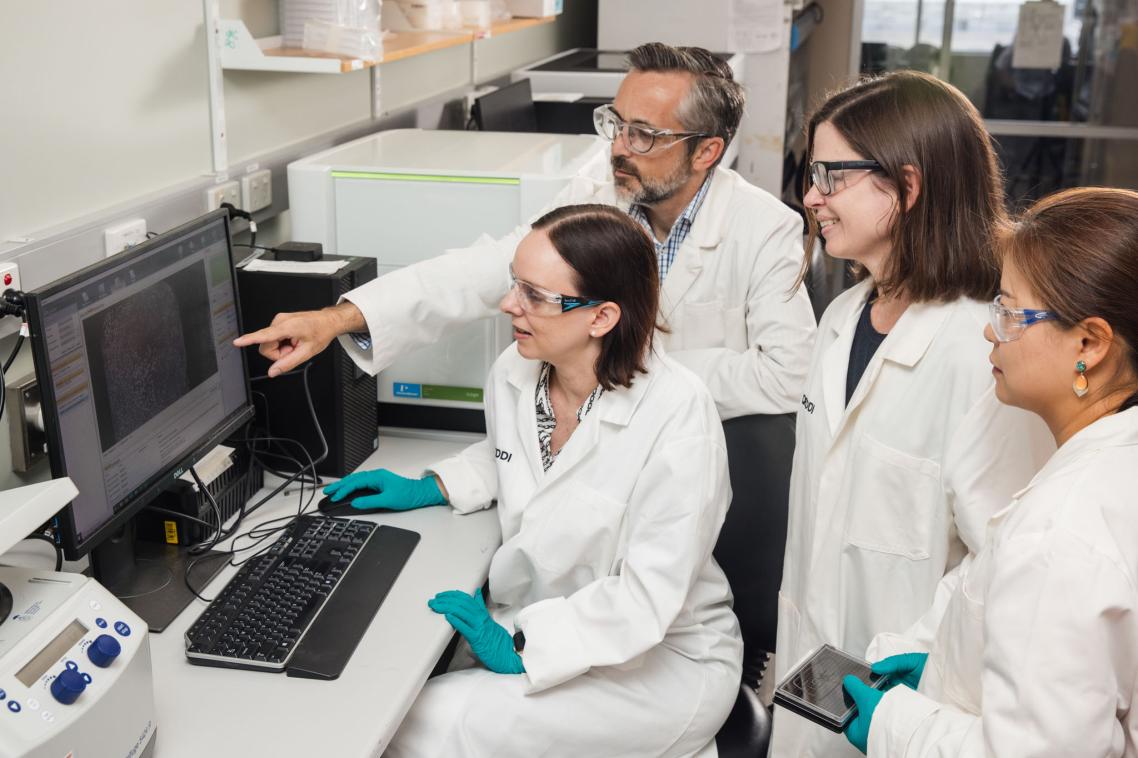Advanced prostate cancer drug a step closer to the clinic

QEDDI Drug Discovery Team Leader Dr Kim Beaumont, Head of QEDDI Brian Dymock, and Medicinal Chemistry Team Leader Dr Rebecca Pouwer.
A $1.25 million investment is driving the development of a new treatment for advanced and therapy-resistant prostate cancer at The University of Queensland.
Based on research by Professor Greg Monteith from UQ’s School of Pharmacy and Pharmaceutical Sciences, the drug (QED-203) is being developed by the Queensland Emory Drug Discovery Initiative (QEDDI), the small molecule drug discovery arm of UniQuest, the university’s commercialisation company.
The vital injection is from US-based global drug accelerator Critical Path Institute’s Translational Therapeutics Accelerator (TRxA).
Head of QEDDI, Dr Brian Dymock, said prostate cancer was the most common cancer among men worldwide, with around 280,000 cases each year that progress to advanced disease, known as metastatic castration-resistant prostate cancer (mCRPC).
“We are incredibly grateful to Critical Path Institute for the support as we advance our novel prostate cancer therapy, QED-203, toward clinical development,” Dr Dymock said.
“This funding will enable us to conduct key drug manufacturing and safety studies, bringing QED-203 significantly closer to becoming a novel therapeutic option for patients who would otherwise have very limited treatment options.”
Dr Dymock said QED-203’s mode of action led the QEDDI team to discover the drug’s target was particularly relevant for treating patients with advanced disease.
Professor Monteith, an expert on the role of calcium signalling in cancer, said it was an exciting advancement that could lead to better outcomes for patients.
“Our first work on this target and its importance in cancer progression began almost 15 years ago,” Professor Monteith said.
“It is very exciting to have worked with QEDDI scientists who have developed this first-in-class drug that now has the potential to better treat prostate cancers that have become resistant to current therapies.”
TRxA Executive Director Dr Maaike Everts said QED-203 had a unique mode of action that aimed to improve the survival and quality of life of those with mCRPC when they had exhausted all available treatment options.
“We are excited to support this groundbreaking research that has the potential to significantly impact the treatment landscape for advanced prostate cancer,” Dr Everts said.
The funding will facilitate critical preclinical studies, process optimisation, drug substance manufacturing and safety studies, paving the way for QED-203 to potentially advance to human clinical trials.
Topics
Related articles

Staying physically active cuts risk of early death by 40 per cent

Medicinal cannabis is big business. But the latest clampdown won’t curb unsafe prescribing
Media contact
UQ Communications
communications@uq.edu.au
+61 429 056 139
